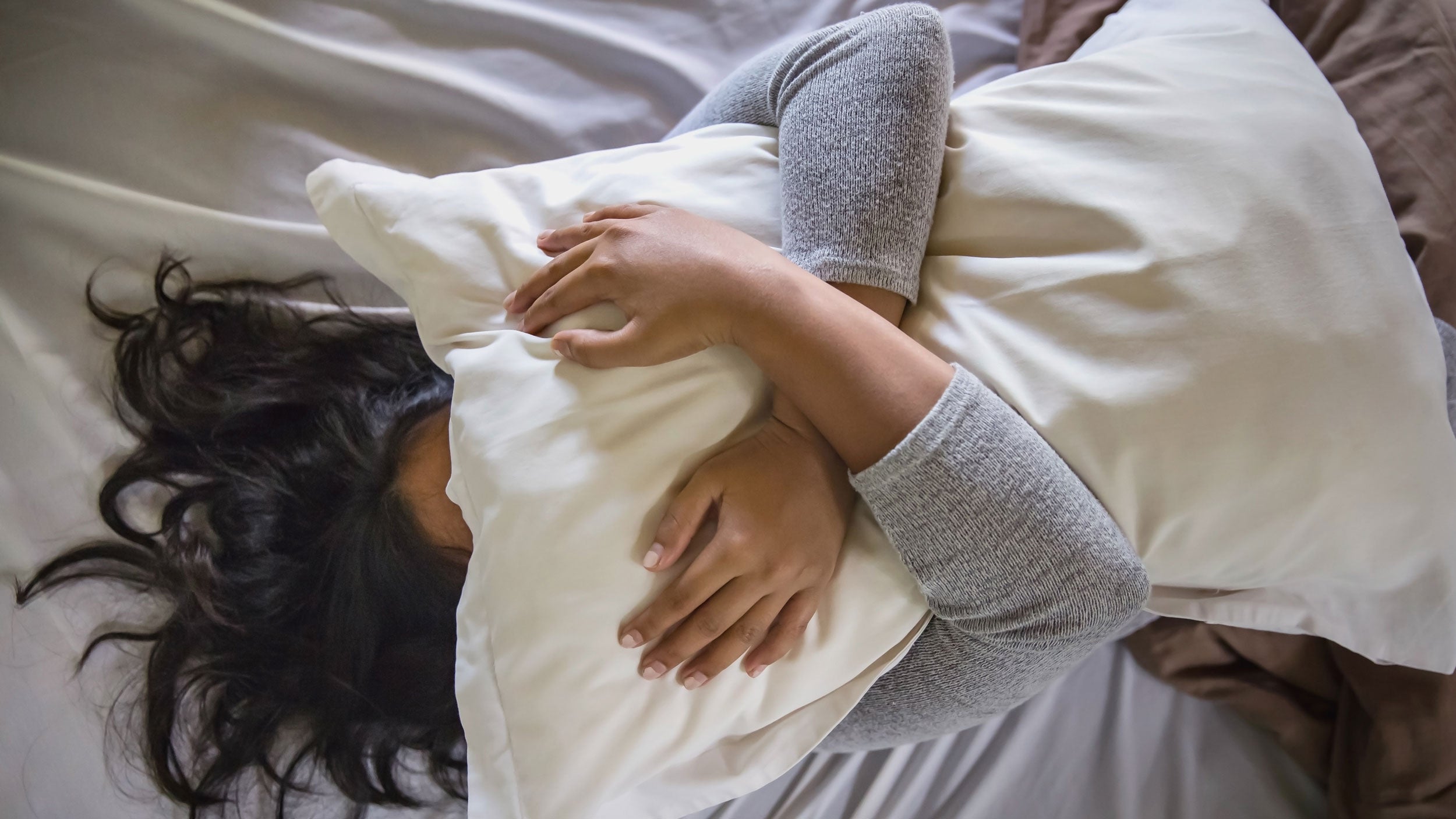Sorry, 40-Year-Olds, But Researchers Say That's the Age When Your Sleep Is the Worst

It’s official: 40 is the new sleep-deprived age. So yes, along with your demanding career, unrelenting caregiving responsibilities, and (gestures at everything else happening in the world), you can also expect to clock the fewest hours of rest during this decade. In a recent sleep study, researchers from the Medical College of Georgia at Augusta University evaluated the sleeping patterns of more than 11,000 participants. The team evaluated data from the National Health and Nutrition Examination Survey, which was collected between the years of 2011 and 2014. Participants wore a sleep-wake activity monitor, called an accelerometer, for three days to track the time they spent asleep versus awake. This was the largest sleep study to date that relied on objective data instead of self-reported participant data.
Why do 40-year-olds sleep the least?
According to the results of the study, our sleep steadily declines from the age of 10 until we hit 40. That’s when we reach the bottom of the U-shape, sleeping the least number of hours. However, if you’re at, nearing, or beyond 40 years old, there’s also reason for hope. As you may expect with a U-shape, the study found that most Americans experience steady increases in their sleep around the age of 50. To support this, the study’s researchers pointed to a recent evidence from a study in Japan as well as research in France, with similar results. So yes, the sleep deprivation of 40-year-olds is not a uniquely American problem.
The researchers attributed much of the steady decline of sleep duration to societal influences. It’s no surprises that a 22-year-old may want to sleep less (and stay out later) than a 83-year-old. Similarly, the typical responsibilities for a 40-year-old—including working jobs, raising children, caring for aging parents, and being physically active, may lead them to miss out on more sleep.
The researchers noted that sleep duration tends to increase around 60 to 65 years of age due to retirement. Obviously, retirees have more time to sleep, therefore increasingly their overall sleep duration. Additionally, the investigators point to the influx of health concerns that many older adults face. To cope with more severe health concerns, older adults may rest more.
What else did the sleep study find?
The study, the first to use 24-hour accelerometer data to represent national trends, provided more insights on the sleep behaviors of Americans. In addition to duration of sleep, researchers also examined sleep efficiency, which is a measurement of sleep quality.
You’re likely familiar with sleep efficiency in your own life—even if you haven’t heard of the term. Consider thiss all-too-common scenario: You intend to get a solid eight hours of sleep but find yourself waking up repeatedly throughout the night, resulting in an unfortunate case of next-day-tiredness. Repeat this pattern again and again, and you have a low sleep efficiency.
In contrast to other studies, this study found that sleep efficiency remains relatively constant from ages 30 to 60. Previous research had cited it as a steady declining line over the course of your life. After 60, your sleep efficiency decreases, due to many of the same factors impacting sleep duration.
What can I do to improve my sleep?
Feeling disheartened? Don’t be. There are ways to improve your sleeping habits—and seek out more restful nights—at any age. If you’re feeling restless before falling asleep, try calming down with some easy stretches. Also, rest assured that you’re not the only one experiencing sleep issues, and sometimes the knowledge that you are not alone in your predicament can be comforting. Jonathan Van Ness recently shared the sleeping problems he faces on a regular basis, as well as the three restorative poses he uses to fall back asleep. The next time you find yourself staring at the ceiling for a little too long, you know where to find help—and not just by waiting it out another few years.
RELATED: Native Bee Species Still Need Saving
Get more of what you love from VT. Follow us on Instagram, Facebook, and Twitter, and sign up for our email newsletters.